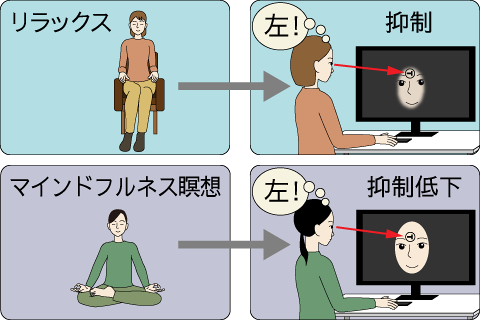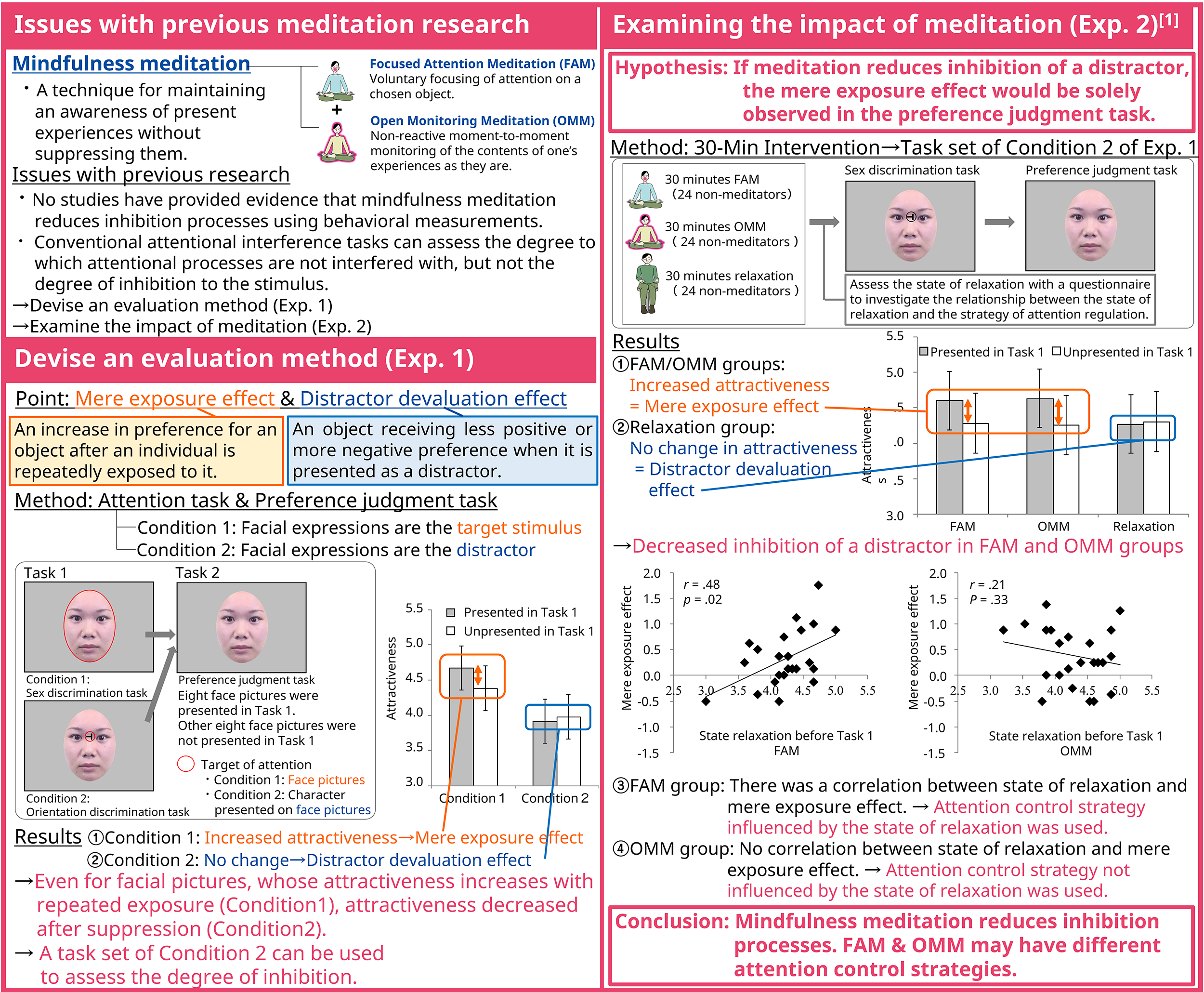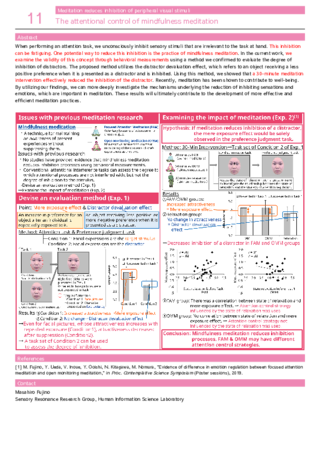| 11 |
The attentional control of mindfulness meditationMeditation reduces inhibition of peripheral visual stimuli 
|
|---|
When performing an attention task, we unconsciously inhibit sensory stimuli that are irrelevant to the task at hand. This inhibition can be fatiguing. One potential way to reduce this inhibition is the practice of mindfulness meditation. In the current work, we examine the validity of this concept through behavioral measurements using a method we confirmed to evaluate the degree of inhibition of distractors. The proposed method utilizes the distractor devaluation effect, which refers to an object receiving a less positive preference when it is presented as a distractor and is inhibited. Using this method, we showed that a 30-minute meditation intervention effectively reduced the inhibition of the distractor. Recently, meditation has been shown to contribute to well-being. By utilizing our findings, we can more deeply investigate the mechanisms underlying the reduction of inhibiting sensations and emotions, which are important in meditation. These results will ultimately contribute to the development of more effective and efficient meditation practices.

[1] M. Fujino, Y. Ueda, V. Inoue, Y. Ooishi, N. Kitagawa, M. Nomura, "Evidence of difference in emotion regulation between focused attention meditation and open monitoring meditation," in Proc. Contemplative Science Symposium (Poster sessions), 2019.
Masahiro Fujino
Sensory Resonance Research Group, Human Information Science Laboratory



